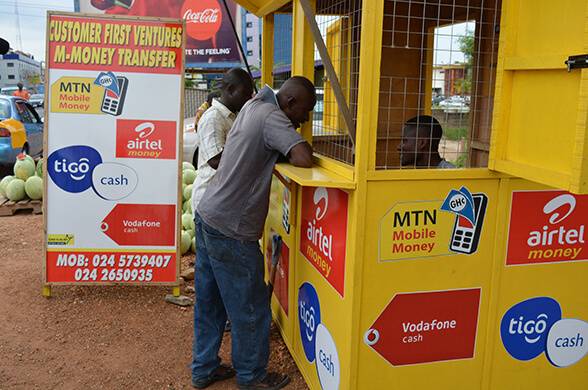The Ghana Revenue Authority (GRA) has issued a strong directive to all
financial institutions, mobile money operators, and charging entities to refund
any E-Levy deductions made on transactions from April 2, 2025. This follows the
official abolition of the 1% Electronic Transfer Levy (E-Levy), marking the end
of a tax that had sparked widespread debate and controversy since its
introduction.
With President John Mahama’s approval of the Electronic Transfer Levy Act,
2022 (Act 1075) and its amendment, Act 1089, the levy has now been officially
removed. In response, the GRA has made it clear that any financial institution
that fails to process refunds will face legal consequences. The directive also
mandates all charging entities to immediately stop applying the 1% charge on
electronic transactions and ensure all refunds are processed without delay.
The Commissioner of the Domestic Tax Revenue Division, Edward Apenteng
Gyamerah, emphasized the urgency of the directive in an official statement. He
warned that the GRA would be conducting regular compliance checks to ensure
institutions adhere to the new policy. Any failure to issue refunds will
attract severe penalties under the country’s tax laws.
To prevent further deductions, the GRA has reconfigured its Electronic
Transfer Levy Management and Assurance System (ELMAS) to automatically block
any charges on electronic transactions. This means that from April 2, 2025, no
customer should experience deductions related to the E-Levy on mobile money,
bank transfers, or other digital transactions.
The directive also requires all institutions that collected the levy before
the official abolition date to account for the funds and settle any outstanding
E-Levy payments. Additionally, financial institutions and charging entities
must maintain detailed records of electronic transactions for at least six
years as mandated by the Revenue Administration Act, 2016 (Act 915). This will
ensure transparency and accountability in the refund process.
Ghanaians who notice wrongful deductions are encouraged to report the issue
to their respective service providers and demand immediate refunds. The GRA has
assured the public that any charging entity that refuses to comply with the
directive will face strict legal actions. The authority has also established an
E-Levy Technical Support Team to assist institutions in adhering to the new
regulations.
This announcement has been met with widespread relief among Ghanaians, many
of whom had opposed the levy from its inception. Economic analysts predict that
the abolition of the E-Levy will boost digital transactions and encourage
financial inclusion. The tax had previously led to a decline in mobile money
transactions, with many people opting for cash-based transactions to avoid the
extra charges.
The GRA has reiterated that any attempt to continue applying the levy or
delay refunds will be considered an offence and will be met with legal
consequences. Charging entities must submit detailed reports on all refunds
processed to ensure compliance. Institutions are also expected to continue
posting electronic transactions to the ELMAS system until further notice.
The removal of the E-Levy is seen as a significant step in restoring public
trust in the financial system. Many businesses and individuals had voiced
concerns about the additional burden the levy placed on transactions,
particularly in an economy where digital payments are increasingly becoming the
norm.
While the tax was initially introduced as a revenue-generation measure,
critics argued that it discouraged electronic transactions and contradicted
efforts to promote a cashless economy. The government’s decision to scrap the
levy aligns with its broader plan to drive financial inclusion and stimulate
economic growth through digital innovation.
With the abolition now in full effect, the focus is on ensuring that all
financial institutions comply with the GRA’s directive. Customers are advised
to monitor their transactions and report any deductions immediately. The GRA
has assured the public that it will not tolerate any form of non-compliance and
will take necessary legal action against institutions that fail to refund
deducted funds.
The scrapping of the E-Levy comes at a time when Ghana is making strides in
enhancing its digital economy. Many stakeholders believe that this move will
encourage more people to use digital payment platforms, ultimately contributing
to economic expansion. However, the GRA has made it clear that all outstanding
E-Levy payments must still be settled for transactions that occurred before
April 2, 2025.
As the refund process gets underway, Ghanaians will be watching closely to
ensure that financial institutions and mobile money operators comply fully with
the directive. The GRA remains committed to enforcing the policy and ensuring
that no citizen is unfairly charged moving forward.



No comments yet
Be the first to share your thoughts!